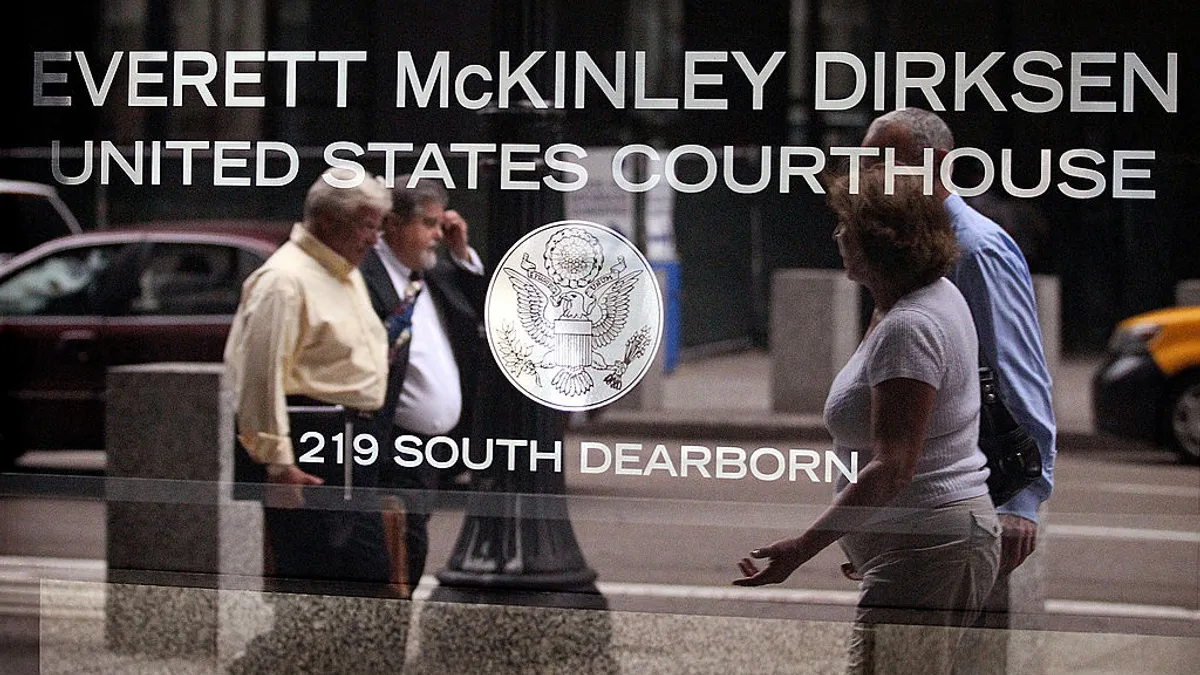Dive Brief:
- A former prison healthcare firm employee failed to show that her employer required her to work in excess of 40 hours per workweek and therefore failed to carry her initial burden in showing that she worked unpaid overtime, the 7th U.S. Circuit Court of Appeals held Jan. 22.
- The court found that the plaintiff in Osborn v. JAB Management Services, Inc., who was free to design her own schedule, lacked evidence with the specificity needed to show that she worked 15 hours of overtime per week as she claimed. The 7th Circuit also said the plaintiff’s evidence of her schedule was “inconsistent,” noting that she claimed her overtime hours remained the same even as her workload declined.
- “If this claim survived summary judgment, then any FLSA claim in which the employee vaguely describes her schedule as having exceeded forty hours per week would reach a jury,” the court said. It affirmed a district court’s grant of summary judgment for the employer.
Dive Insight:
Citing prior precedent, the 7th Circuit said that an employee who claims they have not been fully compensated for overtime in violation of the Fair Labor Standards Act bears the burden of proving they performed overtime work. This can be done by pointing to the employer’s records, or — if the employer’s records are either inaccurate or nonexistent — the employee may overcome summary judgment by showing that a genuine dispute of material fact exists as to whether they worked uncompensated overtime.
In Osborn, the employee did state that she worked approximately 10 hours per day, but the district court determined that she only offered a vague response when asked what work she did during that time. The 7th Circuit also noted that the plaintiff did not include how long it took her to complete certain “labor intensive” tasks or how often she engaged in them throughout the workweek.
“Because [the plaintiff’s] evidence of her daily schedule lacks specificity and suffers from inconsistencies, we are left to speculate as to how many hours she worked per week,” the 7th Circuit said. “A jury would be left guessing too. Speculation will not do.”
The decision came just days after the U.S. Supreme Court addressed a circuit split concerning a separate procedural FLSA question. In E.M.D. Sales v. Carrera, a unanimous court held that employers need not meet a heightened evidence standard in order to show that an employee is exempt from the law’s overtime pay protections.















